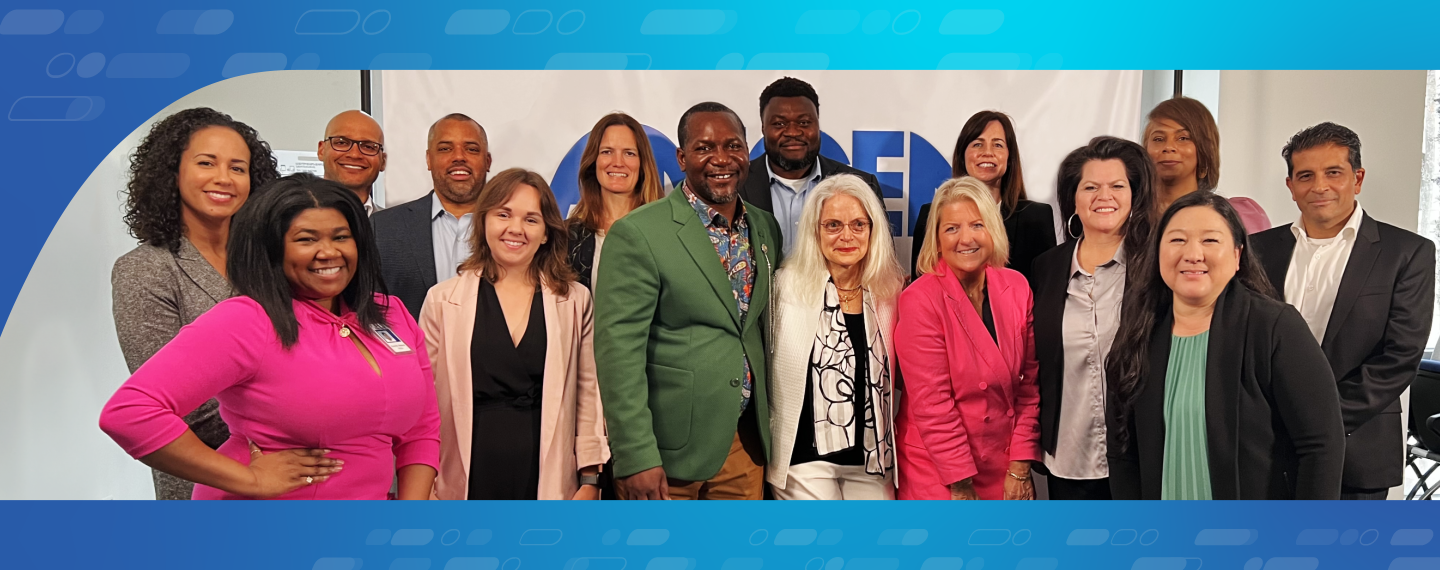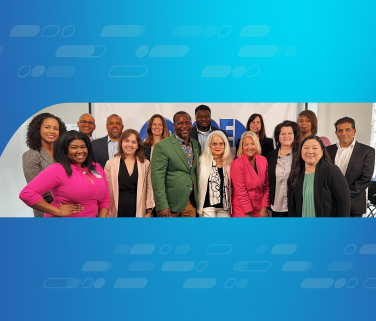In the communities where Amgen operates, and throughout the U.S., cardiovascular disease is one of the greatest public health crises of the modern era, with someone suffering a heart attack or stroke every 40 seconds. But cardiovascular disease risk isn’t the same for everyone. According to Cleveland Clinic, 47% of Black adults have been diagnosed with cardiovascular disease, compared to 36% of non-Hispanic white adults.
That kind of disparity is why Amgen held its first-ever Health Equity Challenge to identify and support community-based, non-profit organizations throughout the state of Florida that are advancing innovative solutions for reducing disparities in cardiovascular disease among Black communities. Each of the five Health Equity Challenge finalist organizations received funds from a pool of $500,000 to implement a year-long cardiovascular disease health equity solution in their Florida communities.
“We are operating within a community with a high percentage of cardiovascular disease,” say Pastor Gerard Duncan, of Pleasant Street Civil Rights and Cultural Arts Center, a recipient organization in Gainesville, Fla., that will use the funds to provide a community health worker-led program focused on cardiovascular disease, cholesterol, and nutrition education. “The Health Equity Challenge will enable us to engage the community, educate the community, but also mobilize the community with some sort of sustainability. Because at the end of the day, we want communities to be self-sufficient about their own health and wellness.”
On June 21, the five recipient organizations below were celebrated with an event at the Amgen Capability Center, in Tampa, Fla.:
- Health and Hope Clinic (Pensacola)
- Pleasant Street Civil Rights and Cultural Arts Center (Gainesville)
- Reach St. Pete (St. Petersburg)
- St. Pete Free Clinic (St. Petersburg)
- Urban Health Partnerships (Miami)
“At Amgen, we recognize that helping patients and reducing the impact of serious illness continues beyond discovering, developing and delivering medicines,” said Jude Ngang, Amgen’s executive director of Representation in Clinical Research, who served as host for the event. “It also requires bold solutions and the combined strength and ingenuity of multiple organizations working together towards a common goal – and often at the community level.”
The Health Equity Challenge aims to advance equitable access to culturally appropriate education about the urgency of testing and treating high cholesterol among Black Americans. It aims to provide access to regular cholesterol testing, screening, and appropriate treatments for Black Americans at risk of heart attack or stroke. And it seeks to find ways to help patients overcome treatment barriers due to cost or lack of insurance/underinsurance.
“Our goal is to make sure that if someone needs help with resources, that door is open for them,” said Alexia Morrison, president of Reach St. Pete, a recipient organization in St. Petersburg, Fla., that operates a pop-up mobile pantry, and will use funds from the challenge to offer cardiovascular disease education and navigation services. “I personally know the power of when the community shows up, and how it can change the trajectory of someone's life."





